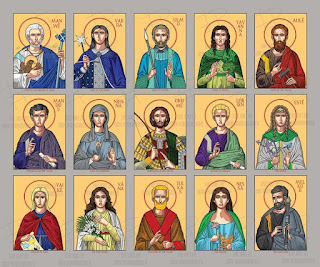The Silmarillion: Evil, Friendship and the Power of Words
This is one of a series of five seminars discussing Tolkien's great works.
Begun even before the Great War, this work was considered by Tolkien to be the work the closest to his heart; his magnum opus. Yet the work wasn't even published until 1977, four years after Tolkien's death. Why is it a significant work? Would it be significant without the Hobbit and the Lord of the Rings? What is Tolkien saying about the nature of evil? Hope? Friendship? and the power of words to convey a vision of the world?
The Oath of the Silmarils, as given in Morgoth's Ring:
“Be he foe or friend, be he foul or clean
Brood of Morgoth or bright Vala,
Elda or Maia or Aftercomer,
Man yet unborn upon Middle-earth,
Neither law, nor love, nor league of swords,
Dread nor danger, not Doom itself
Shall defend him from Fëanáro, and Fëanáro’s kin,
Whoso hideth or hoardeth, or in hand taketh,
Finding keepeth or afar casteth
A Silmaril. This swear we all…
Death we will deal him ere Day’s ending,
Woe unto world’s end! Our word hear thou,
Eru Allfather! To the everlasting
Darkness doom us if our deed faileth…
On the holy mountain hear in witness
and our vow remember,
Manwë and Varda!"
Thus spoke Maedhros and Maglor and Celegorm, Curufin and Caranthir, Amrod and Amras, princes of the Noldor; and many quailed to hear the dread words.
The inscription inside the Ring of Power:
"Three Rings for the Elven-kings under the sky,
Seven for the Dwarf-lords in their halls of stone,
Nine for Mortal Men doomed to die,
One for the Dark Lord on his dark throne
In the Land of Mordor where the Shadows lie.
One Ring to rule them all, One Ring to find them,
One Ring to bring them all and in the darkness bind them
In the Land of Mordor where the Shadows lie."
— The Lord of the Rings
Hail, Earendil!



Comments
Post a Comment